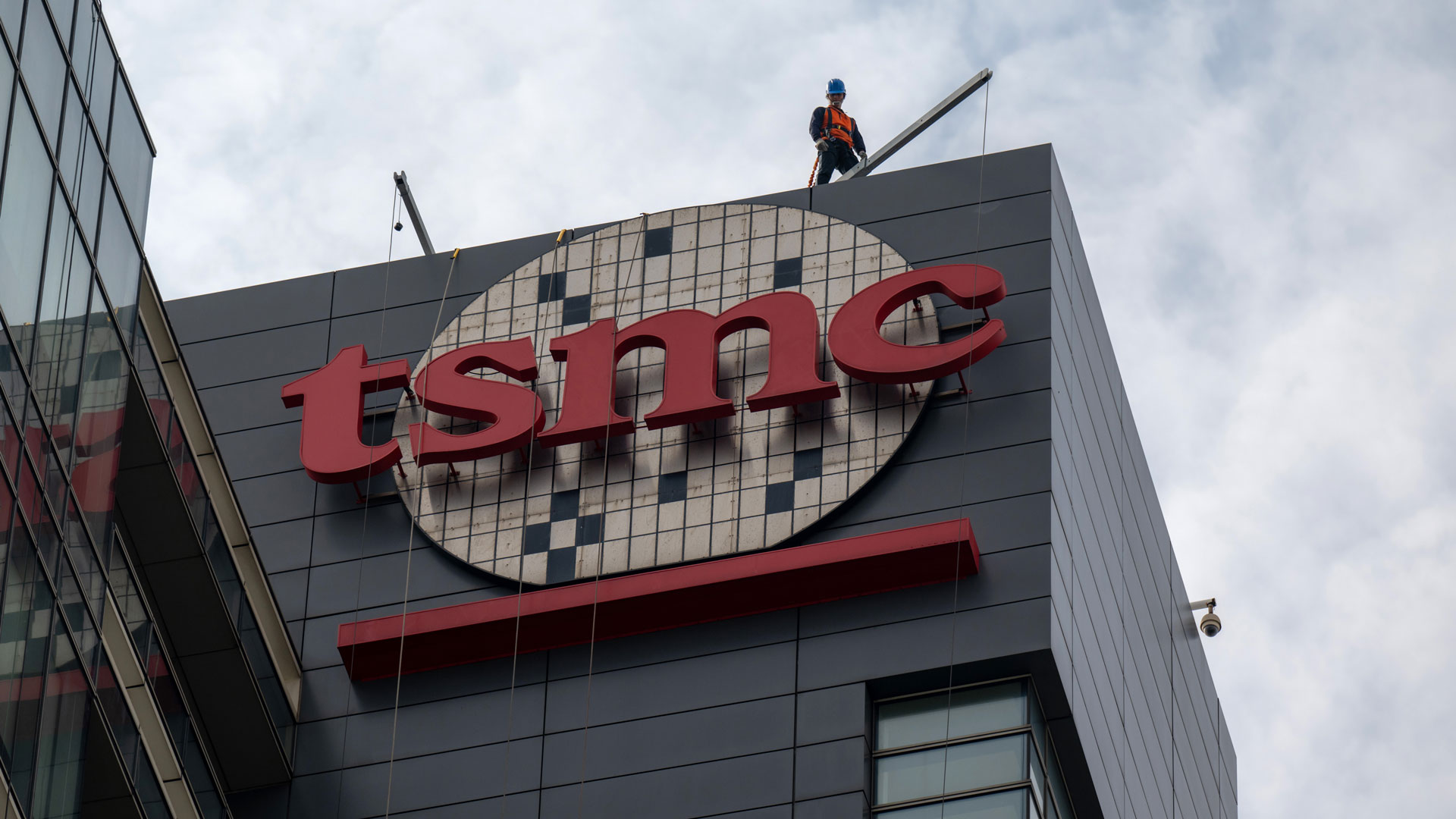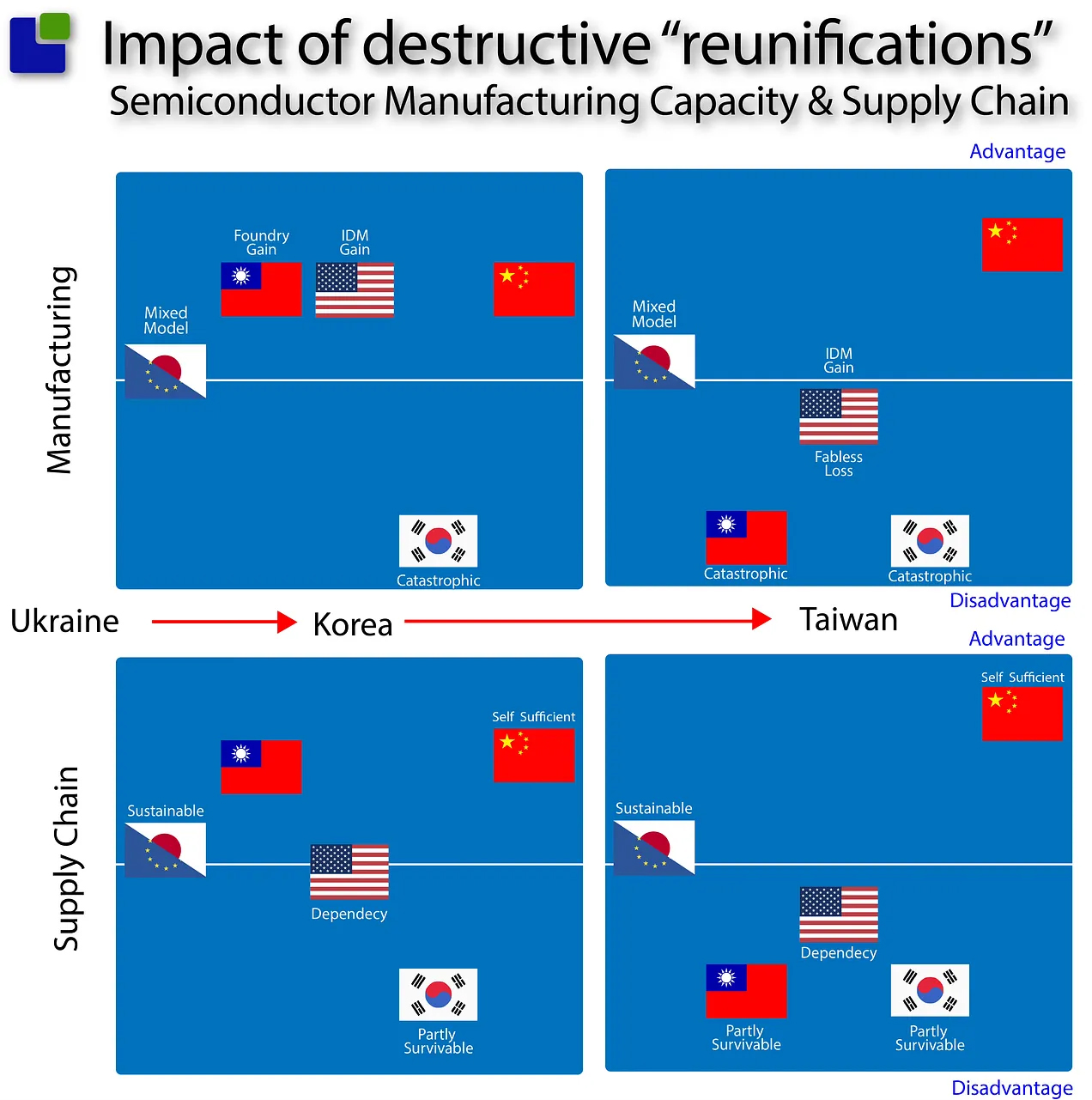
Semiconductor Business Intelligence recently published a different take on China's plans for Taiwan and TSMC. Numerous predictions have been made about the events that would unfold if China invaded Taiwan, with most theories predicting that either Taiwan or the US would destroy TSMC's fab to deny China ownership of what are arguably the most important factories in the world. However, Claus Assholm, a semiconductor analyst, has a contrarian take—what if China's strategy to deal with TSMC's presence in Taiwan is simply to destroy it?
"What if China is not deterred by potentially mined TSMC factories and ASML kill switches? What if the reunification plan is based on eradicating the TSMC factories and the Semiconductor supply chain in Taiwan and beyond?" Assholm ponders in his blog.
It's no secret that the Chinese Communist Party (CCP) has ambitions of bringing Taiwan under its control as part of China. However, the prevailing thought in many tech circles is that its plans are somewhat tempered by TSMC or the threat of its destruction if the Chinese People's Liberation Army (PLA) fails to capture its facilities during an invasion's opening hours.
Much of the globe's advanced semiconductors come from the island, so regional conflict will affect chip supply. TSMC and its advanced chip fabs are considered a strategic resource by the U.S. and its allies, with the U.S. Commerce Secretary saying that a Chinese seizure of the company would devastate America. The U.S. has even been said to be willing to bomb TSMC facilities themselves in case of a Chinese invasion, and the company added a remote self-destruct function to its EUV machines.
Washington has been applying several sanctions to hamper Beijing's semiconductor aspirations. Still, even if it has slowed down hardware development in China, Chinese tech firms have made several innovations that are slowly allowing them to pursue advanced technology while decoupling from Western sources.
Assholm says that Taiwan and South Korea own 22% and 28% of the global semiconductor capacity, respectively, with China coming in third at 12%. However, if both countries are removed from the equation, China's 12% will quickly jump to about a third of global capacity.
In this scenario, Assholm says that China's share of semiconductor output would only grow annually, even as the U.S. supercharges its semiconductor manufacturing industry. The CHIPS Act spurned chip fab investments to greater heights than the past 28 years combined. After all, Beijing is also investing billions into its tech industries to drive development.
If a conflict occurs between Korea and Taiwan, the two biggest semiconductor manufacturing nations would be taken out of play, putting China on top. Furthermore, the analysis said that if Taiwan were to get into an armed conflict, American semiconductor manufacturing would only suffer a slight loss, with integrated device manufacturers (IDMs like Intel) gaining market share. At the same time, fabless companies would incur massive losses. On the other hand, the semiconductor supply chain would be gravely affected as it would leave the U.S. dependent on other unaffected sources. However, in both scenarios, China will become a self-sufficient country in the long run.

After the dust settles, China, with most of its supply chain based in-country, would likely be the leading global electronics supplier, especially with both Taiwan and South Korea devastated. Even though we will likely have our electronics turned back by about 15 to 20 years, we'd still gladly buy them from the cheapest quality supplier, especially as we transition our society into an electronic, interconnected one.
Fortunately, as Assholm points out, this is just a scenario. But war is irrational, and to some, it's just a tool to remain in power. History shows that even the most significant trading partners can get into a shouting match because of one dictator. Let's hope that cooler heads prevail and we continue living in peace.







